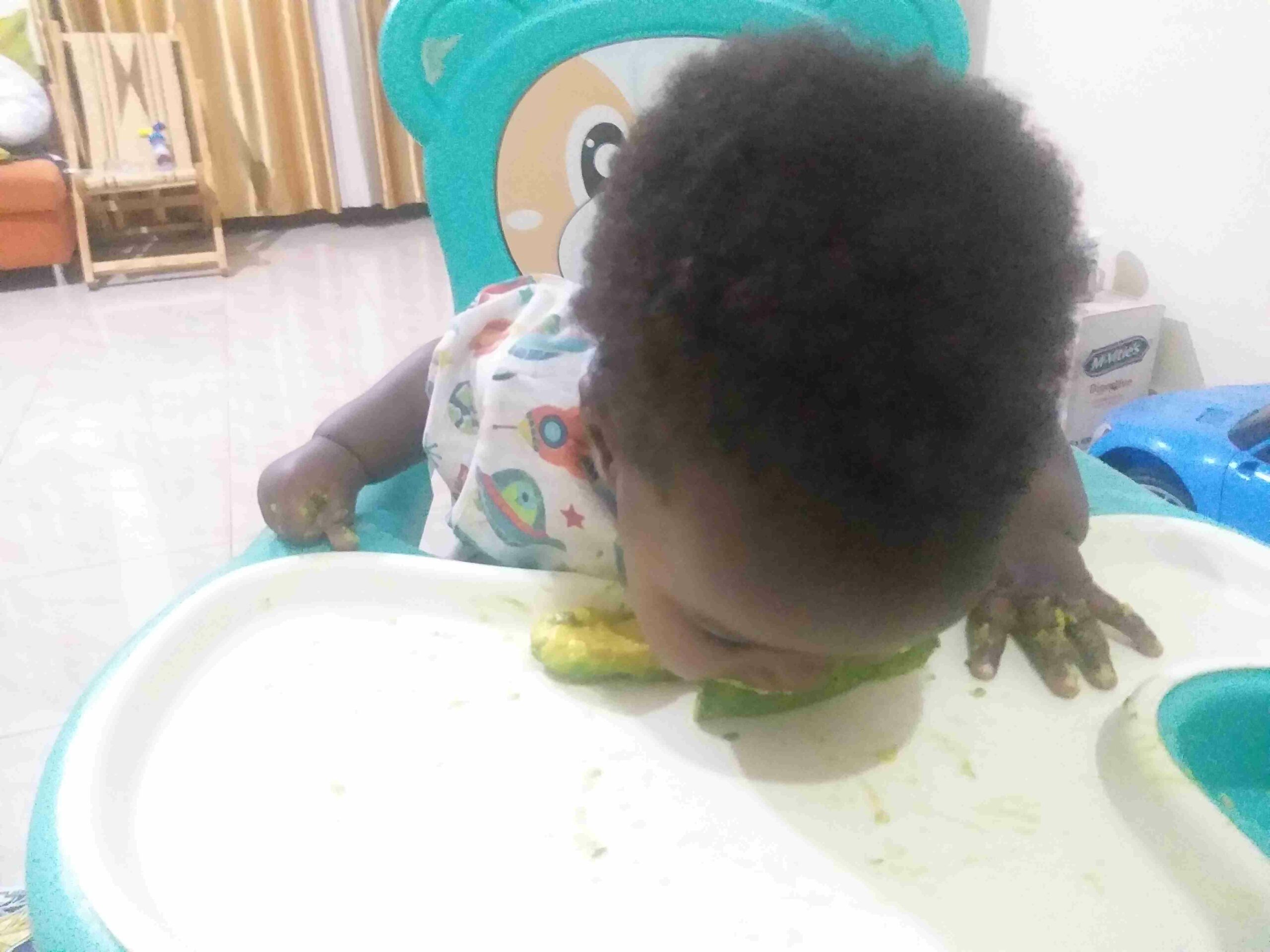The Exciting Time To Introduce Solid Food!
For almost every parent, it’s a big moment when the baby has reached 6 months of age and everyone is thinking on how best to introduce to the baby girl or baby boy the long waited solid food!
I got lucky to get the valuable information before my oldest daughter reached that phase and we navigated the journey in some of the happiest moments in our lives, we have got many though! (See picture).
Now, let us move ahead busting the myths around that process which is chaotic to most parents!
Introduction for a reason
Why It’s Important
First and foremost, know that “we are introducing”, we are not going to feed the baby like s/he was starving or like it is the end of the world waaaaa! Which most of the parents tend to think because the kid has spent 6 months on milk or formula only and has to eat at the end! Of course, there are high chances for those in big cities that they will bring Nestlé Cerelac or other cereals and try to overfeeding the kid who had 5 months some few days ago 😉. Just completing 6 months does not make the baby become super hungry overnight, big no. It does not make the kid hungry, loin de la, just know that the baby is exploring, s/he is getting introduced to other things in this world that s/he was not aware of. The baby was used to liquids only (breast milk, formula, or whatever magical milk depending on what the parent was able to provide) and now we are going to show the baby that there are other things and it is possibly time for her or him to test them.
List of foods rich in iron and zinc
A baby starting to eat can be offered solid food in two ways. Puree de food or food in small parts. Each parent will choose according to their confidence and how they think they should feed their babies. On the list with necessary nutrients as discussed above, for those rich in iron, we have meat of different types (beef, chicken or fish) and eggs. Meaning, we can prepare omelet, boiled meat in small parts, grinded beef, etc. Other foods include yogurt, small peas with zinc and other vegetables prepared in any way as they will help in digestion because most of the time when babies start solid food, they get constipated.
Food that helps digestion
The digestive system is not yet used to solid food and that’s why a lot of fruits and veggies will help. Most fruits like banana, avocado, passion fruits, many among which have vitamin C and veggies like broccoli, carrots, green beans, chou fleur, spinach, all have various nutrients and help in digestion and help against constipation. Please don’t forget about drinking water. When the baby starts to eat solid food consider adding small quantities of water progressively. Even though the taken breast milk or formula has water in it but it’s not enough as the water will help in digestion and also thirst. So, offer drinking water when you start process of offering solid food.
Any type of food
Any type of food you prepare for the baby can be spiced according to your culture and food preference, don’t think the baby has to eat things that are not tasty as you usually do! The baby has to get used to the diet in your household! The babies enjoy good tasty food!
don’t separate
Don’t separate baby food. Just avoid salt and sugar before 1 year, they don’t serve anything, and they dehydrate the baby and, their kidneys are not yet able to manage salt in big quantities so try to leave it in cooking as other spices will bring some sort of salt in them which will be more than enough.
monkey see monkey do
If we want the baby to eat, we need show the best way to do so by picking the food with the fork, spoon or hand and articulately chewing the food with our mouth and drinking water in front of the baby. We are modeling in front of the child the behavior we want the child to adopt.
Take away
It’s normal for the child to gag. Gagging is normal for the child to bring back what was going to be swallowed before being well chewed. It helps to bring back the food that was going to cause choking. So, don’t panic. It’s better than having it going through and cause trouble to the baby to breath. If the baby is gagging is totally normal as well as the baby not liking the food, you have offered.
Note also that the poop of the baby starting solid food will change! Hoooo, that has to happen at the end. The poop will become solid and will not continue to be runny as it used to be! Be ready for the smell and the constipation that come with solid food possibly due to limit offering of veggies or fruits to facilitate digestion.
Lastly, a baby who is starting to eat has to get her or his mouth cleaned. So, you have to start brushing the little teeth for those who have them or using a tissue to clean the mouth after eating (as well as the tongue. emoji).
Each child despite being young is a unique human with proper preferences, personality, taste and way of appreciating things; we have to develop that mutual respect and confidence without trying to follow the same pathway or compare with the siblings, cousins, neighbors or whoever else because it will form the basis for other learning in this world. Enjoy it!
Mrs. San
Seek Professional Advice If Concerned
If you have any concerns about your baby’s diet, always consult with your pediatrician for guidance and advice.
Why Introducing Solid Food Is Important
Solid food is a crucial part of every baby’s growth and development journey.

Nutrient-Rich Options
Introducing solid food ensures your baby gets essential nutrients to support their growth.

Develops Motor Skills
Eating solid food helps develop your baby’s fine motor skills and hand-eye coordination.

Reduce Allergy Risks
Gradually introducing solid food can help reduce the risk of allergies and food sensitivities.
Ready to introduce solid food?
Get tips and resources for your baby girl or boy at communication@raisethemtobloom.com